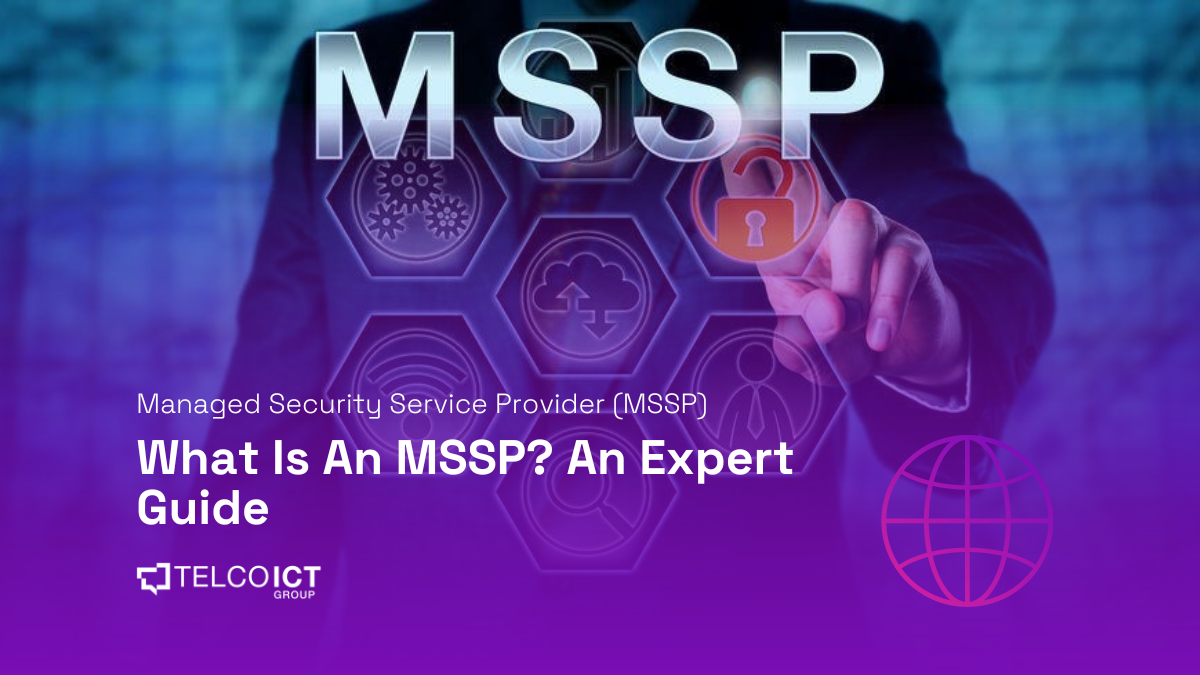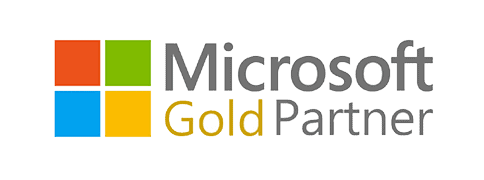All Posts / Cybersecurity Melbourne: Shield Business from Digital Risks
Cyber security
Cybersecurity Melbourne: Shield Business from Digital Risks

In the digital age, businesses in Melbourne are confronted with an increasingly sophisticated and complex threat landscape. The rapid evolution of cyber-attacks means that more than traditional security measures are needed. Cybercriminals employ advanced techniques to breach systems, exploit vulnerabilities, and cause significant harm. As such, companies must adopt and implement comprehensive Cybersecurity Melbourne strategies that address these emerging threats.
This guide provides in-depth insights into the current cybersecurity environment and offers actionable strategies to fortify your business against various digital risks. From understanding the nature of various cyber threats to implementing robust security measures, this resource is designed to help Melbourne businesses navigate digital security challenges and safeguard their valuable assets. By following these recommendations, companies can enhance their security posture, mitigate potential risks, and ensure resilience in the face of ever-evolving cyber threats.
The Evolving Threat Landscape
Cybersecurity threats are diverse and constantly evolving. Here are some prevalent threats:
Phishing Attacks
Phishing attacks involve cybercriminals deceiving users into disclosing sensitive information through deceptive emails or websites. These attacks often impersonate trusted organizations or individuals to create a sense of urgency or legitimacy. Victims might be tricked into providing login credentials, financial details, or other confidential information. Phishing is frequently the precursor to more severe breaches, such as unauthorized access to systems or identity theft. Effective countermeasures include employee training, email filtering solutions, and vigilant scrutiny of unsolicited communications.
Ransomware
Ransomware is malicious software that encrypts files on a victim’s system and demands a ransom payment for the decryption key. This can severely disrupt business operations by locking critical data, leading to significant financial losses. In some cases, businesses might be forced to pay a ransom to regain access to their files, but there is no guarantee that the attackers will provide a working decryption key or refrain from future attacks. Prevention strategies include regular data backups, robust antivirus protection, and employee training to recognize phishing attempts that often deliver ransomware.
Data Breaches
Data breaches occur when unauthorized individuals gain access to confidential or sensitive information, such as personal, financial, or proprietary data. The fallout from a data breach can be severe, including substantial financial penalties from regulatory bodies, long-term reputational damage, and legal actions from affected parties. These breaches can result from hacking, insider threats, or inadequate security measures. Protecting against data breaches involves implementing strong access controls, encrypting data at rest and in transit, and conducting regular security audits to identify and address vulnerabilities.
Malware
Malware encompasses various harmful software designed to disrupt, damage, or gain unauthorized access to systems. This category includes:
- Viruses: Malicious programs that attach themselves to legitimate files and spread to other systems, often causing data corruption.
- Worms: Self-replicating malware that spreads across networks, exploiting vulnerabilities without user intervention.
- Trojans: Software that appears legitimate but contains hidden malicious functions, creating backdoors for attackers or stealing information.
- Spyware: Programs that secretly monitor user activities and gather sensitive data without consent.
- Adware: Software that displays unwanted ads and tracks user behavior.
DDoS Attacks
Distributed Denial of Service (DDoS) attacks overwhelm a target system, network, or website with excessive traffic, causing significant disruptions and downtime. These attacks typically involve a network of compromised devices, a botnet, to flood the target with traffic, rendering it inaccessible to legitimate users. DDoS attacks can disrupt business operations, decrease customer satisfaction, and cause reputational damage. Mitigating DDoS attacks requires traffic filtering solutions, content delivery networks (CDNs), and working with specialized DDoS protection services to absorb and manage attack traffic effectively.
The Impact of Cyber Attacks
Cyber-attacks can have severe consequences for businesses, including:
- Financial Loss: This includes direct costs such as ransomware payments and indirect costs such as legal fees and regulatory fines.
- Reputational Damage: Negative publicity and loss of customer trust can have long-lasting effects on your business.
- Operational Disruption: System downtime and loss of productivity can significantly impact your business operations.
- Legal Consequences: Non-compliance with data protection regulations can result in substantial fines and legal action.

Essential Cybersecurity Measures
1. Implement Robust Firewall Protection
Firewalls are a fundamental component of cybersecurity. They act as barriers between your network and potential threats, filtering incoming and outgoing traffic.
Key Benefits:
- Traffic Monitoring: Constantly monitors network activity to identify and block harmful traffic.
- Access Control: Restricts access to sensitive data and systems based on user roles and permissions.
- Intrusion Prevention: Detects and mitigates potential intrusions before they can cause harm.
Choosing a high-quality firewall solution can significantly enhance your business’s security posture.
2. Regular Software Updates and Patching
Keeping software up-to-date is crucial for security. Outdated software can have vulnerabilities that cybercriminals exploit to gain unauthorized access.
Key Benefits:
- Bug Fixes: Updates address known vulnerabilities and improve software performance.
- Enhanced Security: Reduces the risk of exploits targeting outdated versions.
- Compliance: Adheres to industry standards and regulatory requirements for software maintenance.
Establish a routine for regular updates and patches to maintain system security.
3. Strong Authentication Practices
Strong authentication practices are essential for preventing unauthorized access to your systems and data. Multi-factor authentication is a particularly effective method.
Key Benefits:
- Enhanced Security: MFA requires multiple forms of verification, making unauthorized access more difficult.
- Reduced Risk: Minimizes the impact of compromised credentials.
- User Accountability: Tracks user actions, providing better oversight and security.
Implementing MFA can greatly reduce the risk of credential-based attacks.
4. Data Encryption
Encryption is a vital component of data protection. It converts data into a secure format that is unreadable without the appropriate decryption key.
Key Benefits:
- Data Protection: Ensures that even if data is intercepted, it remains inaccessible without proper authorization.
- Regulatory Compliance: Meets legal requirements for data protection and privacy.
- Customer Trust: Demonstrates a commitment to safeguarding customer information.
Encrypt both data at rest and in transit to provide comprehensive protection.
5. Comprehensive Backup Solutions
Regular backups are crucial for business continuity. In the event of a cyber-attack or data loss, backups enable you to restore your systems and data quickly.
Key Benefits:
- Disaster Recovery: Facilitates swift restoration of data and systems following an incident.
- Minimized Downtime: Reduces the impact of data loss on business operations.
- Peace of Mind: Provides assurance that critical data can be recovered if needed.
Automate your backup processes and ensure that backups are stored securely.
6. Employee Training and Awareness
Employees are often the first line of defense against cyber threats. Regular training helps them recognize and respond to potential security risks effectively.
Key Benefits:
- Informed Staff: Educates employees about various cyber threats, including phishing and social engineering.
- Reduced Risk: Lowers the likelihood of human error leading to security breaches.
- Enhanced Vigilance: Encourages proactive behavior in identifying and reporting suspicious activity.
Invest in ongoing training programs to keep your staff updated on the latest threats and security practices.
Choosing a Cybersecurity Melbourne Provider
Selecting the right cybersecurity provider is critical for implementing and maintaining effective security measures. Consider the following factors when evaluating providers:
- Experience and Expertise: Choose a provider with a proven track record and deep expertise in cybersecurity Melbourne.
- Comprehensive Services: Ensure the provider offers a range of solutions, including threat detection, incident response, and compliance support.
- Customer Reviews: Look for testimonials and case studies that demonstrate the provider’s effectiveness and reputation.
- Support and Training: Select a provider that offers ongoing support and training to keep your team informed and prepared.
A reliable cybersecurity provider can help you implement and manage security solutions tailored to your business’s needs.
Staying Compliant with Regulations
Compliance with data protection and cybersecurity regulations is essential for avoiding legal repercussions and maintaining customer trust. Key regulations include:
- Australian Privacy Principles (APPs): Guidelines for managing personal information and ensuring privacy.
- Notifiable Data Breaches (NDB) Scheme: Requirements for reporting data breaches to the Office of the Australian Information Commissioner (OAIC) and affected individuals.
- Cybersecurity Frameworks: Adherence to frameworks such as the Australian Cyber Security Centre (ACSC) Essential Eight, which provides guidelines for implementing robust security practices.
Ensure that your cybersecurity practices align with these regulations to maintain compliance and protect your business.
Future-Proofing Your Cybersecurity
As cyber threats continue to evolve, it is essential to future-proof your cybersecurity strategy. Consider the following steps:
- Invest in Emerging Technologies: Explore advanced security technologies, such as artificial intelligence and machine learning, to enhance threat detection and response.
- Regular Security Assessments: Conduct regular security assessments and penetration testing to identify and address potential vulnerabilities.
- Adapt to New Threats: Stay informed about emerging threats and adjust your security measures accordingly.
Future-proofing your cybersecurity strategy helps ensure that your business remains resilient in the face of evolving threats.
Conclusion
In Melbourne, safeguarding your business from digital risks is a multifaceted challenge that requires vigilance, investment, and expertise. You can effectively shield your business from potential threats by implementing robust cybersecurity Melbourne measures such as firewalls, regular updates, strong authentication, and data encryption. Employee training and selecting a reputable cybersecurity provider further enhance your defenses. Compliance with regulatory requirements ensures you meet legal obligations and build customer trust.
Investing in cybersecurity is not just about protecting your business—it’s about securing your future. By prioritizing comprehensive security practices and staying informed about the latest threats, Melbourne businesses can navigate the digital landscape confidently, protecting their assets and reputation from evolving risks.
Contact Telco ICT Melbourne’s trusted cybersecurity experts for more information on enhancing your cybersecurity posture and ensuring your business remains secure and resilient in the face of digital threats.
Table of contents
Related Posts
We’ll handle the tech
so you can get on with
running your business.

CALL US
1300 414 214
Our Trusted Partners
Contact Us
Let’s Talk
Common Questions
Do you outsource your work overseas?
No. We use local teams only. That way we can respond more quickly to any problems that may occur. We want your tech running smoothly so you can focus on what you do best.
Is your support 24 hours?
Yes. We have people available whenever you need us. We understand that your tech runs 24 hours, and you need it be working at all times.
Are your services customised for my business?
Yes. There is great off the shelf software. But we know one size never fits all. So anything we set up for you is designed to make your business run smoother and in the way you want it to.
Are your services expensive?
No. Reliable tech is the life blood of your business. We keep it running smoothly so your business can keep making money. All our services are fixed fees, so you never get any nasty surprises.
What’s the next step?
Simply book a chat with one of our experts. We’ll have a chat about exactly what you need and how we can help. If you like our approach then we’ll give you a fixed price quote and get everything up and running for you, fast!








